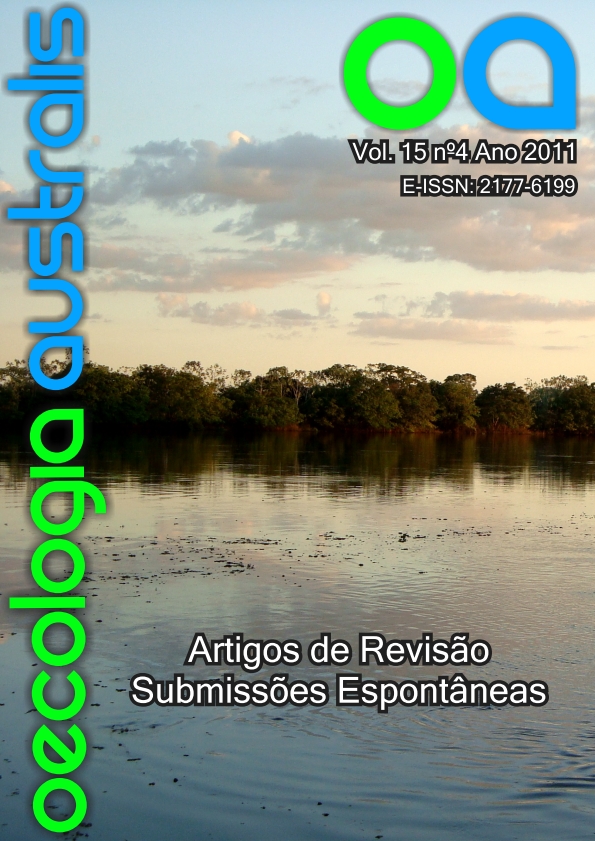CICLÍDEOS NEOTROPICAIS: ECOMORFOLOGIA TRÓFICA
Keywords:
Fishes, diet, trophic morphology, trophic categoriesAbstract
NEOTROPICAL CICHLIDS: TROPHIC ECOMORPHOLOGY. Ecomorphology is the study of the relations between morphology and ecological aspects which are consequences of the variations in use of the resources. Ecomorphological analysis are based on the principle that the interaction between the environment, genotype and phenotype makes possible the development of behavioral characters which determine the strategies of the organisms and their adaptation to the environment where they live. Cichlids constitute a group of evolutionarily interesting fishes, because they have particular morphological characteristics especially from the trophic point of view. In this study we intended, through bibliographic review, to analyze the relations between the morphological characters related directly with feeding (mouth, teeth, gill rakers, stomach and intestine) and the diet of neotropical Cichlids. We also analyzed studies about african Cichlids established in Neotropical region, in spite of the focus of this study being the neotropicals. It was observed that there is a close relation between trophic structures morphology and the diet. From the analysis of these structures we could make inferences about the feeding place in the water column where the food is ingested, the way it occurs, the type of food consumed, the way that occurs the mechanic action of the teeth on the alimentary particles and the size of the food. Despite the importance of the holistic studies, which consider factors which can influence the ecomorphological relations, we can conclude that ecomorphology is an important tool that allows to make inferences about the use of the food resources from the morphological aspects of the species.Downloads
Download data is not yet available.
Downloads
Published
2017-02-20
Issue
Section
Articles


